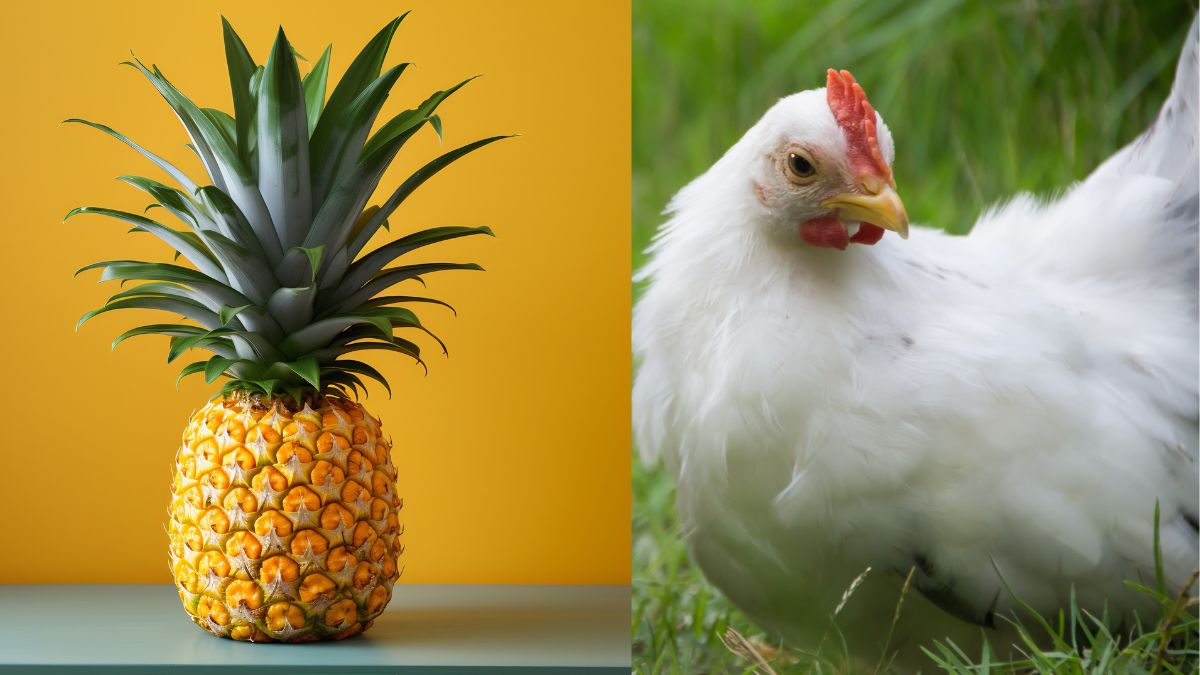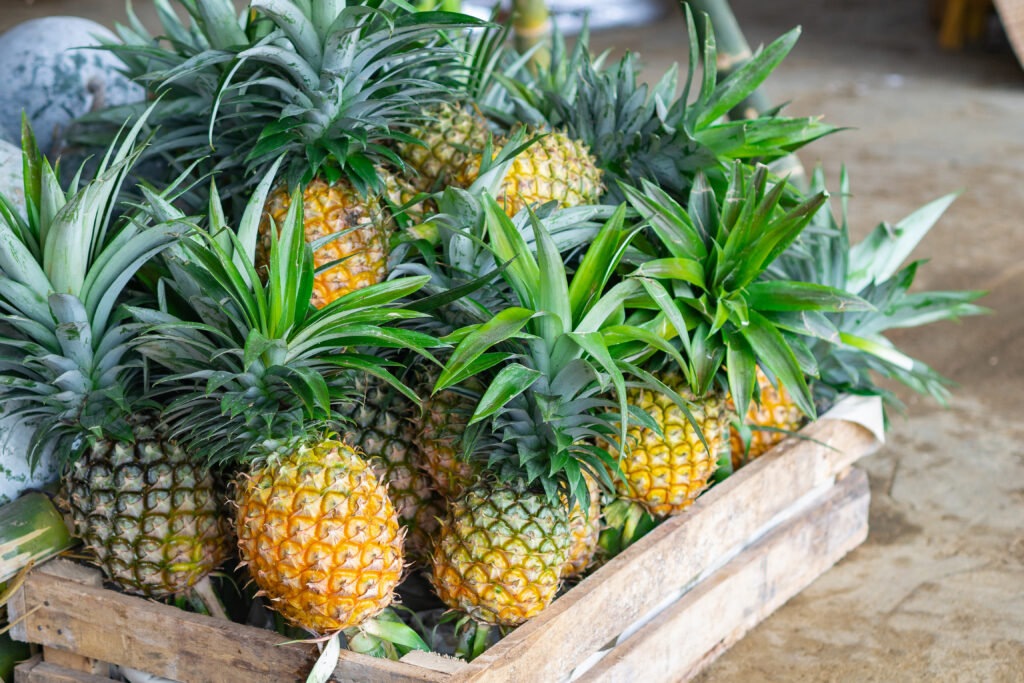Raising backyard chickens comes with many questions about their diet. One common query is, can chickens eat pineapple? The short answer is yes, but with some considerations. While this tropical fruit offers nutritional benefits, excessive amounts can cause digestive issues. This article explores the benefits, risks, and best ways to feed pineapple to chickens.
Nutritional Benefits of Pineapple for Chickens
Pineapple is packed with vitamins, minerals, and antioxidants that can support a chicken’s overall health. Some key nutrients include:
- Vitamin C: Supports immune function and helps chickens combat stress.
- Vitamin B6: Aids in metabolism and nervous system health.
- Manganese: Essential for bone strength and enzyme function.
- Fiber: Supports digestion when consumed in moderation.
- Antioxidants: Reduce inflammation and improve overall well-being.
By offering pineapple as an occasional treat, chickens can enjoy these benefits without the risk of overconsumption.
Potential Risks of Feeding Pineapple to Chickens
Despite its benefits, pineapple should be fed in moderation. Here are some potential concerns:
High Sugar Content
Pineapples are naturally high in sugar, which can cause weight gain and digestive problems if overfed. Too much sugar may also disrupt gut bacteria balance.
Acidity Levels
The acidity in pineapple may irritate a chicken’s digestive tract, leading to loose stools. Introducing it gradually helps prevent any discomfort.
Tough Texture
Pineapple’s fibrous nature makes it harder to digest. To prevent choking, remove the tough core and cut the fruit into small, manageable pieces.
How to Feed Pineapple to Chickens Safely
To ensure chickens enjoy pineapple without issues, follow these guidelines:
Offer in Moderation
Limit pineapple to a small portion once or twice a week as a treat. A good rule is that treats should make up no more than 10% of a chicken’s diet.
Prepare It Properly
- Remove the skin and core: These parts are too tough for chickens to digest.
- Chop into small pieces: This makes it easier for them to eat and reduces choking risks.
- Serve fresh, not canned: Canned pineapple contains added sugar and preservatives that can be harmful.
Observe Their Reaction
Introduce pineapple slowly and monitor for any signs of digestive distress. If chickens show signs of discomfort, reduce or eliminate it from their diet.
Alternative Fruits Chickens Can Eat
If your chickens enjoy pineapple, they might like these other nutritious fruits:
- Berries: Rich in antioxidants and easy to digest.
- Watermelon: Hydrating and packed with vitamins.
- Apples: Remove the seeds to avoid toxicity.
- Bananas: Soft and full of essential nutrients.
- Grapes: Serve in moderation due to sugar content.
Conclusion
So, can chickens eat pineapple? Yes, but in moderation. While it provides essential vitamins and minerals, its sugar and acidity levels mean it should only be an occasional treat. Preparing it correctly and monitoring their reaction ensures your chickens enjoy it safely. As with any treat, balance is key to keeping your flock healthy and happy.
FAQs
1. Can chickens eat pineapple skin?
No, the tough skin is difficult to digest and can pose a choking hazard.
2. How often can chickens eat pineapple?
Offer small portions once or twice a week as a treat.
3. Can baby chicks eat pineapple?
It’s best to avoid feeding pineapple to chicks, as their digestive systems are more sensitive.
4. Can chickens eat canned pineapple?
No, canned pineapple contains added sugar and preservatives that can be harmful.
5. What part of the pineapple should I remove before feeding?
Remove the skin and tough core, serving only the soft, ripe flesh.
6. What should I do if my chickens have diarrhea after eating pineapple?
Stop feeding it and provide plenty of water. If symptoms persist, consult a vet.












